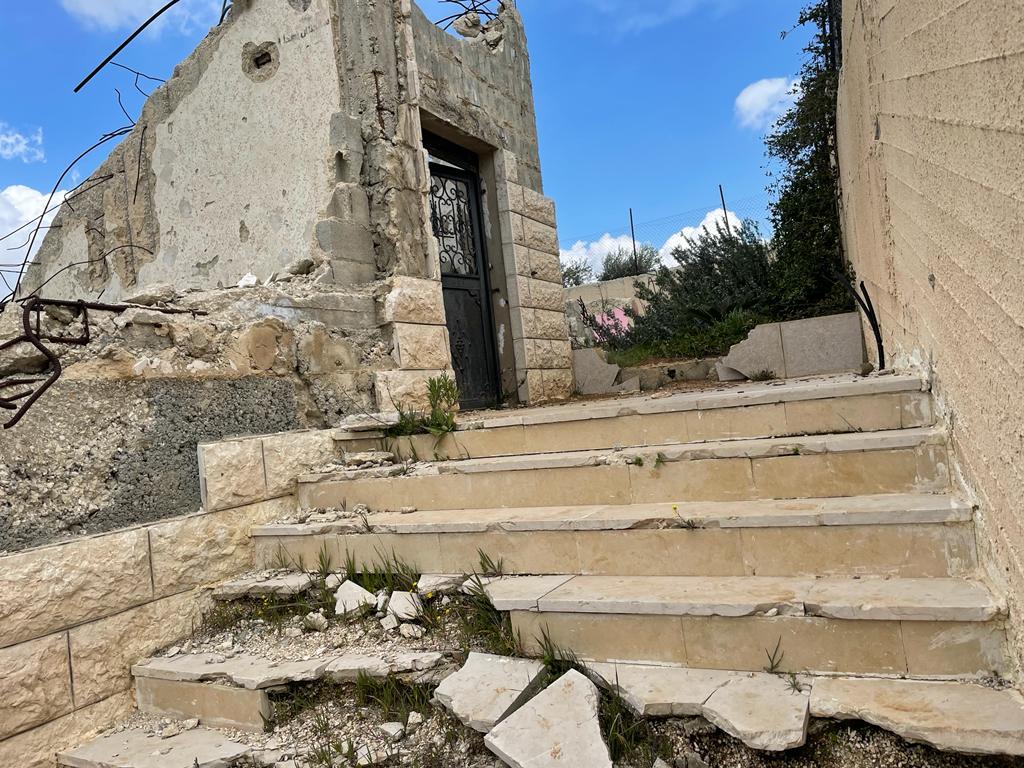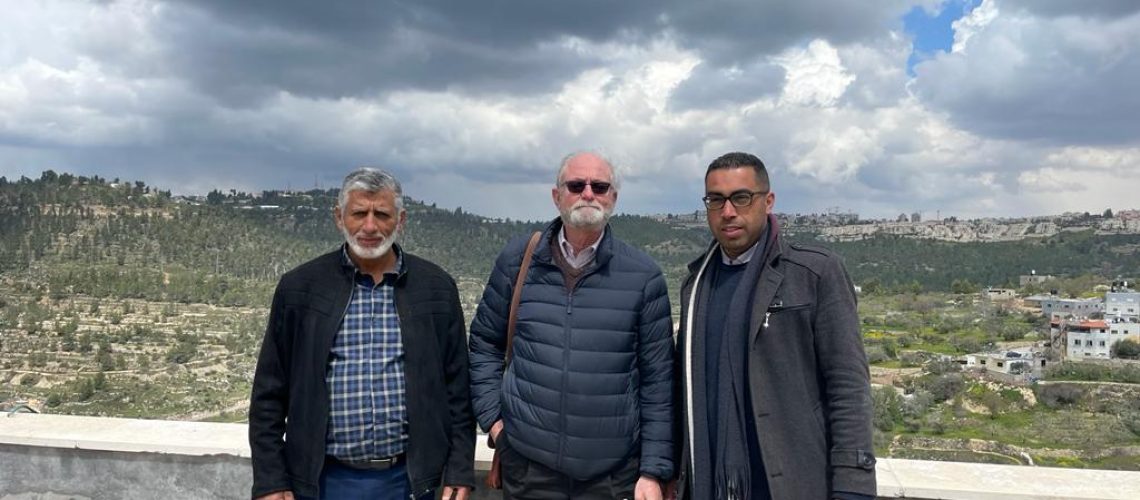By Kenneth Bob, President, Ameinu
This article first appeared in the Times of Israel
Standing upon a rooftop on blustery cold Jerusalem day, my hosts Ibrahim and Hassan pointed out the homes throughout al-Walaja that are designated for demolition. They also called attention to a 5,000-year-old olive tree that is among the oldest in the world and serves as a centerpiece in their pastoral village. Then Hassan, a father and grandfather of 18, motioned to the veteran Jerusalem neighborhood of Kiryat Hayovel across the valley. “Let me build like them…we want the same thing, to live in peace and raise our children.” This plea particularly struck home as my son and daughter-in-law, expecting their first child, live on that nearby hill.
Thirty-eight households in the village, representing 360 family members, are currently part of a class action suit opposing the demolition of their homes due to an absurd “Catch 22” situation.
Their houses are deemed built illegally by the State because they have not received construction permits. However, they can not apply for permits because there is no zoning plan in place for the village. Israeli authorities have refused to design and approve a plan for the village and, in January 2021, the Jerusalem District Planning Committee rejected one developed at great expense by the villagers and Israeli Jewish supporters by a vote of 6-4. Adding to the Kafkaesque injustice, al-Walaja is the only Jerusalem Arab neighborhood without a zoning plan.
What are the central points made by the District Committee in rejecting the proposed plan?
- The Jerusalem section of the village will be far away from municipal services.
This is sadly comical; while the village is officially part of the Jerusalem municipality and the residents pay local property taxes, they currently receive no services from the municipality. Their electricity, water and other services all come from Bethlehem and the Palestinian Authority. The only Israeli government service they receive is house demolition….and each homeowner is billed 200,000 NIS after their home is destroyed.
- The village’s lands must be preserved as a natural “green space,” to be developed, later, into a park.
Currently, directly next to al-Walaja, a 5,000-unit housing project for Jews called “Reches Lavan” is in the making. Other lands that belong to al-Walaja have been confiscated for the building of the Israeli settlement of Har Gilo, as well as expansions of the Gilo neighborhood. Moreover, the natural beauty of al-Walaja– its verdant terraces of olive trees, beans, lettuce and other fruits and vegetables– thrive thanks to the villagers’ meticulous care over the centuries. Using no modern implements, these terraces are the product of a rich agricultural heritage– to be obliterated should a national park be put in its place.

The residents’ Supreme Court appeal will be heard on March 30, 2022. 45 houses have already been demolished in recent years and more, beyond the current 38, are slated for the same fate.
All of this has caught the attention of the U.S. lawmakers and 50 members of Congress recently wrote a letter to Secretary of State Anthony Blinken urging him “to engage with the Israeli government to prevent the displacement of 38 families and the demolition of their homes in the Palestinian village of al-Walaja in East Jerusalem. The destruction and displacement of this community would run counter to the values shared by the U.S. and Israel, while further undermining long-term Israeli security, Palestinian dignity, and prospects for peace.”
As we sat in Hassan’s son’s living room drinking tea and eating snacks, the door opened and two grandchildren came running in, school knapsacks on their backs. “Can you imagine if you were a child,” Hassan asked, “and you didn’t know if you are going to have a home in 10 days?”
The families of al-Walaja deserve a zoning plan and a path forward to thrive as good neighbors, not a future of sitting on rubble not knowing where they will live. As the members of Congress wrote, our values dictate a better future for the residents of al-Walaja.
About the Author:
Kenneth Bob serves as the president of Ameinu, a progressive Zionist organization, as well as chair of Project Rozana USA which focuses on building bridges of understanding between Israelis and Palestinians through healthcare.

